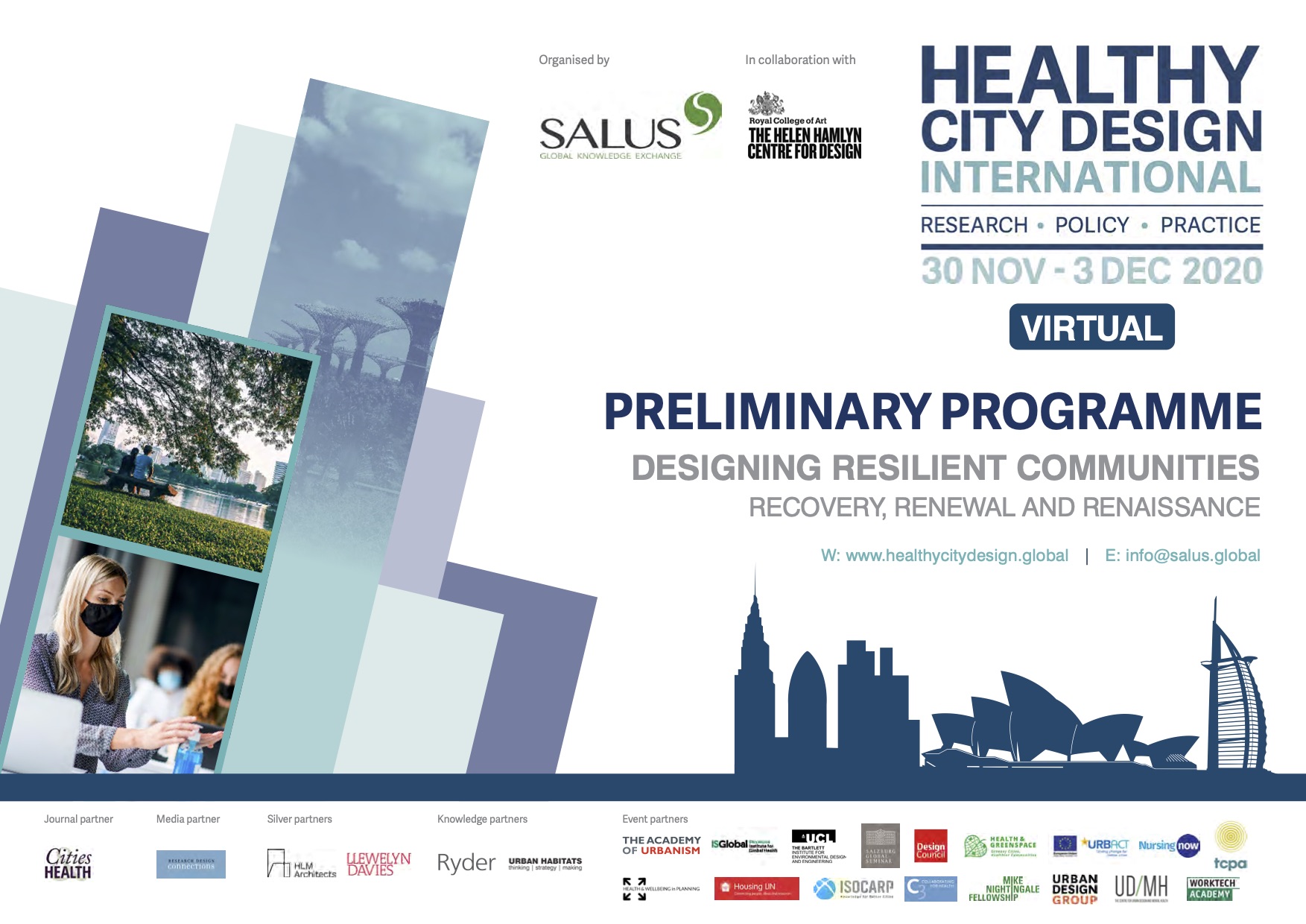We're delighted to launch the Preliminary Programme for the 4th Healthy City Design International Congress, which has been rescheduled to 30 November – 3 December 2020 and will now be held in a virtual setting over four days with more than 100 talks and workshops and 200 speakers from all over the world.
In response both to the ongoing challenges faced by cities and communities and by the onset of the global pandemic, this year’s theme explores ‘Designing resilient communities: Recovery, renewal and renaissance’.
In a rapidly urbanised world struggling to adapt to a climate crisis and the public health emergency of a global health pandemic, the ability of our cities and governments to keep all citizens safe and well has never been under greater scrutiny. Public health professionals, scientists, urban planners, architects and policymakers must now speak with one voice on the need to make our cities more resilient in the face of far-reaching, life-changing threats. 
A multi-faceted concept
However, the whole concept of resilience is multi-dimensional. In its narrowest sense, resilience means snapping back into shape after some adverse incident or effect. It implies the buoyancy, strength and ability to recover an original position or form – but resilient cities are required to do more than that in the context of becoming healthier places to live and work. They must anticipate the future and have the capacity to adapt their disease-resistant and health-creating systems and designs accordingly.
Resilience takes on many different aspects when applied to the healthy city. There is the challenge of environmental resilience that will protect city dwellers from floods and fires, and other adverse climate conditions becoming increasingly common amid a growing sense of climate catastrophe. There is also the conventional healthcare resilience planning we see around international medical emergencies, such as the COVID-19 outbreak. As new hospitals are constructed in China in a matter of weeks as part of a rapid response to infectious disease control, we’re already witnessing the next chapter in healthcare resilience.
But what about operational and technological resilience to keep cities running efficiently, with transport systems moving, workplaces connected to the global digital grid, workforces able to access work, and goods and services flowing around the urban realm unencumbered? In other words, what are the steps to keep the economic pulse of the city beating?
Then there is social and community resilience. How can design strategies in the built environment create more social connection among people of all ages and abilities, improving air quality, decreasing isolation, reducing inequalities, delivering green spaces, and providing safe, affordable housing to boost community wellbeing? Connected to this, we also find the issue of food resilience: as life expectancy stalls among the poorest, how can our cities maintain supplies of fresh, locally produced food that will fuel citizens, avoid panic-buying in times of distress, and prevent ill health? Resilience is not simply a big topic for the healthy city – the impact of COVID-19 means it is now the burning question of the day.
Recovery, renewal and renaissance
In this, the 4th Healthy City Design International Congress, we’ll look at the resilient city from many angles – from creating more resilient homes, neighbourhoods, transport systems and workplaces, to the design decisions that underscore more resilient placemaking, and urban renewal. We’ll look at how smart technologies support the resilient city – and at how low-tech social innovations also have a big impact. We’ll share best practice through case studies and encourage new practice through toolkits and frameworks. Scales of resilience will be examined from recovery to complete renewal, and the kind of transformative effect on city living implied by the term ‘renaissance’.
There is a logic to focusing on the resilient city in 2020. The inaugural Healthy City Design International Congress in 2017 looked at the Wellness City, creating a shared agenda for design and public health professionals to work together more closely. In 2018, we explored the Equitable City, reviewing design strategies to reduce health inequalities. In 2019, the City at the Crossroads modelled both utopian and dystopian views of the future.
A matter of global urgency
This year, the sharing of knowledge at Healthy City Design is more important than ever – how do we adapt and change to prevent, avoid and mitigate disaster, whether natural or man-made? The Healthy City Design International Congress and Exhibition 2020 will take place in a virtual setting on 30 November to 3 December. It’s organised by SALUS Global Knowledge Exchange in partnership with the Helen Hamlyn Centre for Design, Royal College of Art.
The new virtual format for Healthy City Design 2020 features four days of streams, providing attendees with access to more than 100 talks, workshops and panel discussions, and 200 speakers from all over the world. The congress will also feature a knowledge space of exhibitors – as well as the ability to create your own personal profile and network via live chat and messaging, and video meetings. Sessions will be ‘live’ but available ‘on demand’ for 30 days once complete within the virtual event site.
The first three days (30 November – 3 December) will include three parallel streams. The fourth and final day will be largely devoted to a special conference on occupational wellness, launched in partnership with the People Energy Partnership. ‘The People at Work Summit: Designing a resilient, healthy and energised workforce’ will be structured around the Five Foundations of Fuel, Motion, Restoration and Resilience under the umbrella of Community. As the fifth foundation, Community will thread through each of the four sessions. How do we continue to build human community, kindness and gratitude in diverse workplace settings? What does a ‘sense of community’ mean in a virtual world?
To book your virtual pass, please visit the virtual event site.

